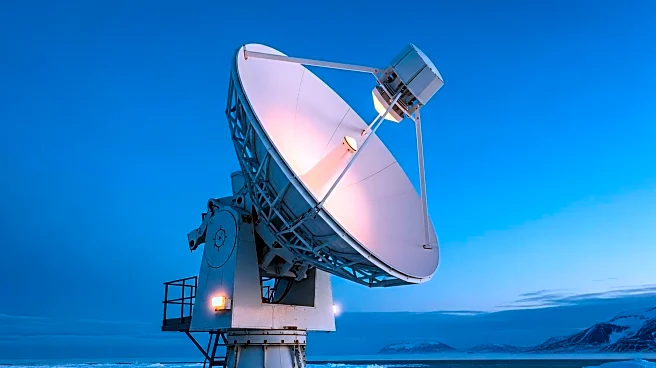What's Happening?
Denmark's Foreign Minister Lars Lokke Rasmussen has summoned Mark Stroh, the U.S. charge d'affaires in Copenhagen, following reports of covert influence operations in Greenland linked to President Trump. According to Denmark's national broadcaster, DR, three individuals close to President Trump were allegedly involved in compiling lists of Greenlandic citizens supportive of Trump's plans to acquire the island. The operation reportedly aimed to weaken Greenland's ties with Denmark and promote a secessionist movement. The U.S. State Department described the meeting between Stroh and Rasmussen as 'productive,' reaffirming strong ties between Greenland, the U.S., and Denmark. However, the U.S. did not comment on the actions of private citizens in Greenland.
Why It's Important?
This development underscores the geopolitical significance of Greenland, which is rich in natural resources like rare earth minerals crucial for technology manufacturing. The alleged U.S. interest in Greenland reflects broader strategic concerns, particularly in the Arctic region where global powers like Russia and China are also active. The situation could strain U.S.-Denmark relations, as Denmark views any interference in Greenland's affairs as unacceptable. The controversy highlights the complexities of international diplomacy and the potential for conflict over resource-rich territories.
What's Next?
The Danish government is likely to continue monitoring activities in Greenland closely, while diplomatic discussions between Denmark and the U.S. may intensify. The U.S. administration's next steps could involve clarifying its stance on Greenland's political status and addressing Danish concerns. The situation may also prompt Greenland to reassess its political and economic ties with both Denmark and the U.S., potentially influencing future governance and resource management strategies.
Beyond the Headlines
The ethical implications of foreign influence in Greenland's internal affairs raise questions about sovereignty and self-determination. The situation also highlights the strategic importance of the Arctic region in global politics, with potential long-term shifts in alliances and power dynamics. The focus on Greenland's resources could lead to increased international competition and environmental concerns, as nations vie for access to critical minerals.










